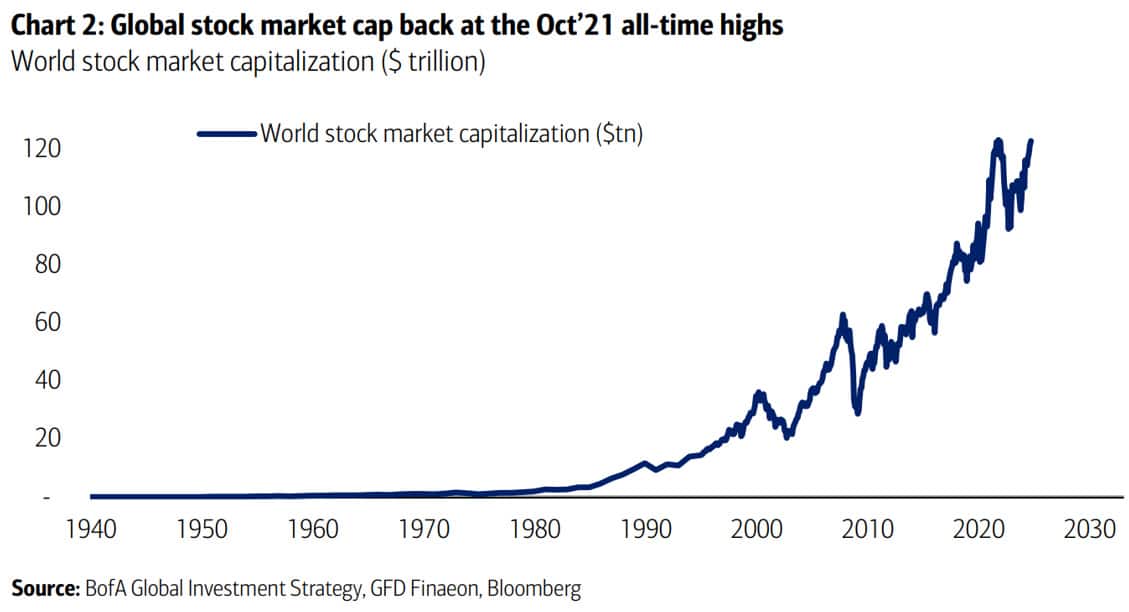The September effect refers to equity markets historically delivering weak returns during September. Not this time. The S&P 500 hit its 42nd record high of the year, and the Dow Jones Index its 32nd. Performance was mainly driven by the soft-landing narrative continuing to look the most likely, as inflation numbers continued to decline, the Federal Reserve cut interest rates by 50 basis points, and the US economy’s growth numbers remained resilient.
The S&P 500 increased by 2.1% during the month, while the Nasdaq rose 2.8%. This puts the year-to-date (YTD) return of both these indices North of 20%. The MSCI ACWI also had a good month, closing 2.4% higher, and is now 19.1% in the green YTD. Things were more subdued in the UK, as the FTSE 100 lost 1.5% for the month. The real party, however, was in China. Hong Kong’s Hang Seng gained a massive 18.3%, while the Shanghai composite gained 17.6% – its biggest monthly gain since the 2015 Chinese stock bubble.
These markets were driven by the largest interventions, from both a fiscal and monetary policy perspective, that the market has seen in years. The measures, aimed at boosting its slowing economy, include reduced interest rates, lower reserve requirements for banks, injections into the financial and property sectors, as well as once-off cash handouts to qualifying citizens. The effect was dramatic, with the Shanghai Index at one stage rising 8% in a single day, to record its best trading day since 2008.
Tensions in the Middle East are reaching fever pitch following Israel’s assassination of Hezbollah leader, Hassan Nasrallah, in an underground bunker in Beirut. Isreal has now eliminated a large contingent of the leadership structures of both Hezbollah and Hamas. Predictably, this led to a response from Iran, as they sent a barrage of roughly 200 ballistic missiles into Isreal. Israel has vowed a response, and the situation is currently the most volatile it has been in many years. Somewhat surprisingly, the effect on the price of crude oil was muted, in fact dropping nearly 9% during the month despite a small gain towards the end. This most likely due to Saudi Arabia stating their intention to reclaim market share, rather than targeting a specific oil price – essentially flooding the market with oil. Other risk assets like gold did respond as expected, rising 5.2% to reach new highs during the month.
Local investors and consumers again had much to cheer about over the past month. Local indices continued to deliver strong numbers, as the JSE All Share Index increased by 4.1%, while the industrials and resources indices also delivered strong performance. After a strong month in August, the Financials index gave back some gains, finishing 0.7% lower. The Rand also continued to strengthen against the USD, gaining 3.1% over the month. This brings the YTD number to almost 6%.
Consumers also got some reprieve on their debt payments as the SARB lowered the repo rate by 0.25% to 8%. Given that inflation is currently approaching the SARB’s midpoint target of 4.5%, and the fact that real rates are sitting at close to 18-year highs, the Reserve Bank still has plenty of room for cuts over the course of the next year. The market is currently pricing in another 25-basis point cut this year, followed by 75 basis points next year.
James Hayward BEng (Civil) CFA
Fund Manager
James (JD) is a fund manager of Flagship’s global funds, having joined in 2021 as an equity analyst. At the completion of his degree, JD worked in the engineering and fintech start-up industries while pursuing further studies in investments. JD holds an Engineering degree from Stellenbosch University and is a CFA charter holder.




















